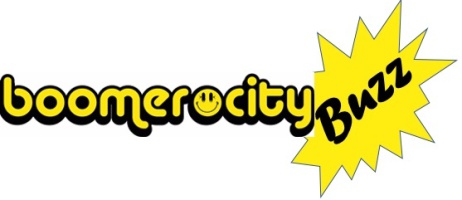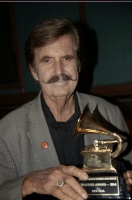Posted June, 2015
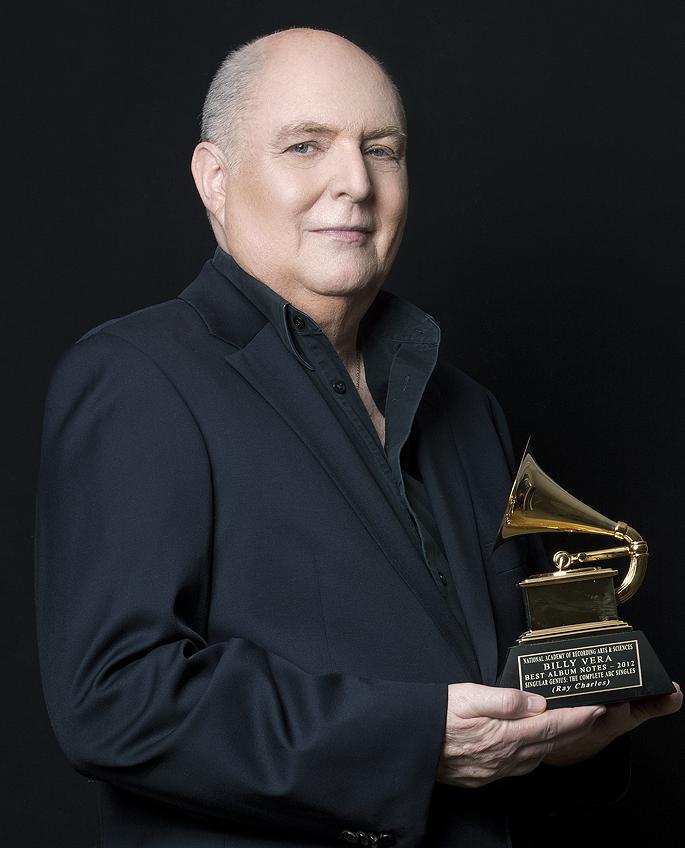 The name, Billy Vera, may or may not ring a bell with you but you most certainly have heard his music, depending on when you became an avid listener.
The name, Billy Vera, may or may not ring a bell with you but you most certainly have heard his music, depending on when you became an avid listener.
If you were glued to the radio in the sixties, you might be familiar with the he wrote “Storybook Children” and “Country Girl, City Man” that he recorded with Judy Clay and later covered by Nancy Sinatra. In the same era, he had a solo hit entitled, “With Pen In Hand”.
He’s arguably most known for his huge hit, “At This Moment”, made famous on a couple of episodes of the hit TV show in the eighties, “Family Ties” and, more recently, enjoyed a resurgence in popularity when Canadian crooner, Michael Buble’, recorded it both in the studio and live.
Still is admired by his fans and peers, alik, his songs have been recorded by such singers as Lou Rawls, Bonnie Raitt, Dolly Parton, Etta James, Fats Domino, Tom Jones, George Benson, and Robert Plant.
Okay, let’s say (just for kicks and grins) that you already knew all that stuff. Did you know that Billy Vera is also a rock music historian?
I didn’t, either.
Vera has lent his historical prowess to writing annotations for some very important commemorative albums and box sets, most recently being the extensive 3 CD box set of Little Richard’s most prolific work entitled, “Directly From{mprestriction ids="*"} My Heart: The Best of the Specialty & Vee-Jay Years”.
When I received my review copy of the Little Richard box set, I also was given the golden opportunity to chat with Billy Vera – both about the box set as well as about his own career. I couldn’t pass up that chance.
We started off with Billy sharing a brief background as to how he got involved with this project.
“Some years ago, I was working for Specialty Records - the label that Richard recorded for. In fact, I did the first Little 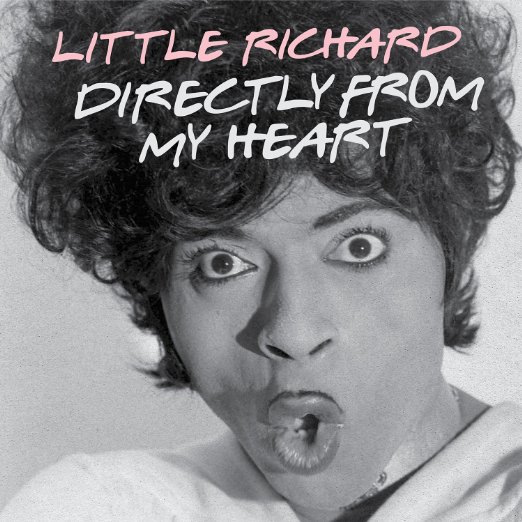 Richard box set back in 1989. Then I did a couple more single Little Richard Cds for Specialty. I produced and compiled them. I had written the notes for Concord’s Ray Charles box set - the complete ABC Paramount Singles and won a Grammy for that. I guess they came to the same well. I’m hoping for another Grammy. Ha! Ha!”
Richard box set back in 1989. Then I did a couple more single Little Richard Cds for Specialty. I produced and compiled them. I had written the notes for Concord’s Ray Charles box set - the complete ABC Paramount Singles and won a Grammy for that. I guess they came to the same well. I’m hoping for another Grammy. Ha! Ha!”
When asked if he knew Little Richard, Vera said:
“I met him years ago. When he got his star on Hollywood Boulevard, I was there representing Specialty Records. I think that was 1989 or ’90. The remarkable thing was that I was the only rock and roller who showed up. All the people that Little Richard influenced and all the fans that became musicians, I was the only one that was there!
“I understood it. Guys are working. They’ve got their own jobs, their own gigs they’re playing or they’re on the road or whatever they’re doing.”
I asked Vera what gems and surprises would he point people to in this box set and, in his mind, what is THE compelling reason to pick up this set.
“It’s fairly complete so there’s not a lot of surprises. You’ve got all the hits from his Specialty years; from ‘Tutti Frutti’ right on through ‘Long, Tall Sally’ and ‘Good Golly Miss Molly’ and ‘Lucille’. They’re all there on CD One and CD Two. Then, on CD Three they put the best of his Vee Jay recordings from the early sixties - which his last, big chart hit was on Vee Jay, which was, “I Don’t What You Got But It’s Got Me”. That’s when Jimi Hendrix was in the band. A song written by Don Covay who had worked for Richard both as his chauffeur and as an opening act under the name, ‘Pretty Boy’. In fact, Don Covay recorded on Atlantic with The Upsetters, Richard’s band, as Pretty Boy; a song called, ‘Bip Bop Bip’. Ha! Ha! A very rare recording.”
Circling back around to closing out his answer to my question, Billy concluded:
“It’s got all this stuff on the set that’s Specialty and some lesser known items - some of the early things he did for Specialty and more obscure items, as well. It’s a pretty good compilation, I would think!”
When he boil it all down to Little Richard’s true core, as an historian as well as a fan, Billy describes him this way:
“I was onto Little Richard early. I was eleven when I bought ‘Tutti Frutti’. The first hit. I heard it on the Alan Freed Show. I was hooked. I loved those horns. I guess that people who came to rock and roll late, they think of it as a guitar based medium. But, for me, between Richard, Fats Domino and so many of those records with those great saxophone players. To me, it’s always been about the saxophone and Richard had those four sax’s honking away, man!
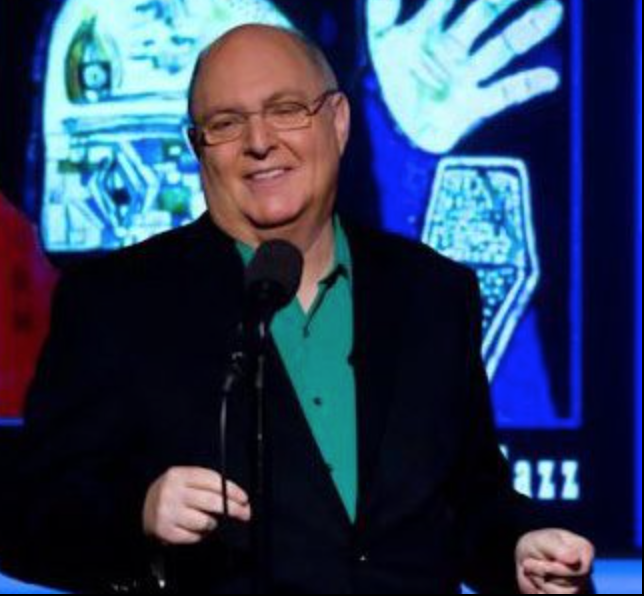 “My mother took me to see, ‘The Girl Can’t Help It’ at the Roxy Theater in Manhattan, which is no longer there. A huge theater the size of Radio City Music Hall. It was a five thousand seater. We were up there. CinemaScope and TechniColor and there’s Little Richard, man, banging away on that piano with those saxophone players dancing and doing choreography. He puts his leg up on the piano and Jayne Mansfield walks by, shakin’ that thing. To me, that was the iconic visual of rock and roll.”
“My mother took me to see, ‘The Girl Can’t Help It’ at the Roxy Theater in Manhattan, which is no longer there. A huge theater the size of Radio City Music Hall. It was a five thousand seater. We were up there. CinemaScope and TechniColor and there’s Little Richard, man, banging away on that piano with those saxophone players dancing and doing choreography. He puts his leg up on the piano and Jayne Mansfield walks by, shakin’ that thing. To me, that was the iconic visual of rock and roll.”
And what does he think is the least known or underappreciated thing is about Little Richard?
“Well, that’s two different items: least known and under appreciated. How many people know that when he got started, he was working a lot of frat houses in the south? In addition to the usual black theaters and black night clubs, he also had gigs playing for drunken college boys. Part of his act was, he would lift the tables and chairs with his teeth. I never saw him do that but I did see another guy do that out here in L.A.
“When I first moved here, I used to go to this club that had this good New Orleans band - Eddie Zip. In the middle Eddie Zip’s act, they would bring out a guy called, ‘Iron Jaws Wilson’. Iron Jaws would sing a blues or two and then, for the finale of his little fifteen minute act, he would pick up a chair with his teeth. Then, he would hook another chair onto that chair. The next thing you know, he had five chairs in his teeth! I couldn’t see how a human being could do that! Then I found out some time later that Little Richard did that in his act.
“You know, drunken college boys like strange things and Richard would often play in drag. He would do ‘dirty’ songs. If you’ve ever played a frat house party, they want dirty songs. In fact, ‘Tutti Frutti’ was a song that he did for those parties with different lyrics. He called it, ‘Tutti Frutti Good Booty’. Actually, that’s what excited the producer, Bumps Blackwell, into thinking that he knew that he had a hit. They had recorded in the morning, their first session in New Orleans. It was pretty disappointing. It was just run of the mill R&B. Nothing special. Bumps was afraid for his job. He said, ‘When I play what we did this morning for Art Rupe, he’s going to be mad at me and think that I wasted his money.’
‘So, they take a lunch break and go to the Dew Drop Inn. Richard was always a big ham - an attention whore. He jumps up on the piano and starts singing and entertaining people. He starts sing this dirty song, ‘Tutti Frutti Good Booty’. There was a spark to it that wasn’t in the songs that they had recorded in the morning. Bumps said, ‘Man! If I could get a clean lyric for this, something that they could play on the radio, maybe we could have a hit!’
“He spotted a local New Orleans songwriter named Dorothy LaBosterie over there having a sandwich or some soup or whatever she was eating for lunch. He goes over to Dorothy and says, ‘Do you think you could clean up the lyric to that?’ She said, ‘Yeah, give me about ten minutes and I’ll knock something out.’ She did and they went back into the studio for the afternoon session and they recorded it. Bumps was happy. He knew his job was secure and, of course, that was one of the iconic songs of rock and roll. From the first moment when he says, ‘Wop bop a loo bop a lop bam boom!’, you knew something new was happening.
“You put that, you put ‘Maybelene’, you put ‘Blue Suede Shoes’, and, also, the Do Wop groups - all that was rock and roll. It wouldn’t be rock and roll without any of them. But, certainly, Richard was one of the triumvirate of mad me. I include him, Chuck and Jerry Lee. All psychotics and all great. I often wondered if there’s a connection. Do you have to be that nuts to be that great? That’s probably a question that will probably go unanswered forever.”
As we discussed Jerry Lee Lewis, Billy shared this little tidbit:
“I sang on one of Jerry Lee’s records. Steve Cropper was producing him in 1973. I had flown in because Cropper was going 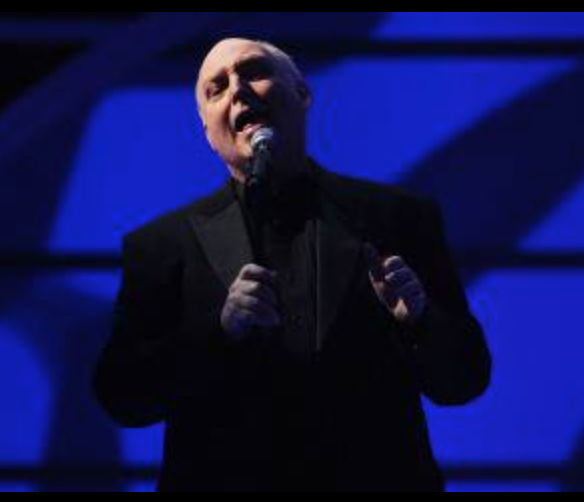 to record me. I had somebody to bring me over to the studio and there he was. He was recording The Killer. He said, ‘You know, this song could use a little harmony with Jerry Lee. Wanna sing it?’ I said, ‘Sure!’ The song is called ‘Jack Daniels Old No. 7’
to record me. I had somebody to bring me over to the studio and there he was. He was recording The Killer. He said, ‘You know, this song could use a little harmony with Jerry Lee. Wanna sing it?’ I said, ‘Sure!’ The song is called ‘Jack Daniels Old No. 7’
“Jerry Lee was playing the piano and on that piano he had a quart - not a fifth ,not a pint, a quart - of bourbon and the more he drank, the faster he played. He was out of his mind, man, but it was a great thrill to sing a song with The Killer!”
In answering my question as to how Lewis was to work with, Vera said:
“He was just ‘there,’ you know? He’s the kind of guy that he seemed like he was spaced; like he was in his own world. On one hand, when you meet him, he will shake your hand and really hard, like it’s a test and he’ll look you right in the eye like he’s testing you. So you know he knows you’re there. Yet, there’s something about him that he’s almost unaware of anything going on around him. It’s hard to explain. But, yeah, he’s nuts! Richard is nuts. Chuck Berry is . . . NUTS!
“I worked with Chuck more than any of them. I worked with him when he was a $1,300 a night act. I worked with him when he was a $15,000 a night act. I worked with him when he was a $50,000 a night act. Many times. The man is whacked!
“The only one of the big ones I think is sane - at least he’s calm; he may be quietly insane - is Fats. I always thought because he’s not crazy like the others, that he gets short shrift. Fats had more hits than all of them put together. The first time I ever walked into a record store with three dollars, one of the three records I bought was ‘Blueberry Hill”. So I love me some Fats!
“He cut one of my songs when he made his comeback album on Reprise so that was a big thrill. Then, to meet him was a big thrill, as well.”
In a ranking of rock and roll icons, where in the hierarchy is Little Richard’s place?
“I think that he’s right up there in the top tier. Certainly with Chuck and Fats and Jerry Lee, you know? Elvis, of course, is off to the side on his own. He’s one of a kind. He’s THE man. Nobody equals Elvis because he had more going for him than the others. He was as handsome as a Greek god so he had that sex thing going with the girls.
“Then, there was those who were important, regionally. I grew up in New York. You ask any singer of my age group that grew up in New York and Frankie Lymon is right there as a major, major influence . . . even though we didn’t have a high, little voice that he had. He was like a little god to all of us but, yet, you go to Memphis - ‘Frankie who?”.
“I guess I”m neglecting Buddy Holly but Buddy, I think, was a different animal because of the songwriting and, also, how short his career was. Of course, in New York, Dion is another icon but underrated compared to the Richard’s and the Fats’s and the Chuck’s.”
Obviously, most casual music listeners will know you from your hits, “At This Moment” and “I Can Take Care Of Myself.” You certainly haven’t been sitting still since those hits. What have you been up to since then? I understand that you’ve done some significant acting, voiceover work, producing and, if I’m not mistaken, you’re still a prolific songwriter, no?
 “I don’t write so much any more. But I also had some hits in the sixties, both as a writer and as a singer. I was on Atlantic Records with a girl named Judy Clay. We had two hits, ‘Storybook Children’ and ‘Country Girl, City Man”. And, then, I had a solo hit on Atlantic called, ‘With Pen In Hand”. Then the seventies came along and I couldn’t get arrested. Everything changed so radically at that point. We played the Apollo Theater a few times. I was the white guy in all these black venues.
“I don’t write so much any more. But I also had some hits in the sixties, both as a writer and as a singer. I was on Atlantic Records with a girl named Judy Clay. We had two hits, ‘Storybook Children’ and ‘Country Girl, City Man”. And, then, I had a solo hit on Atlantic called, ‘With Pen In Hand”. Then the seventies came along and I couldn’t get arrested. Everything changed so radically at that point. We played the Apollo Theater a few times. I was the white guy in all these black venues.
“Then, things kinda changed. All the white guys were trying to be like the black guys. That changed with the advent of the Beatles and the Stones and the British acts. Everybody wanted to be British except those of us who had wanted to be black. Then we said, “well, what do we do now?” and I just couldn’t figure it out. I couldn’t figure where to fit in. I couldn’t go be a heavy metal guy. I couldn’t be a disco guy. I couldn’t be a wimpy singer/songwriter. So I just didn’t know what to do in the seventies. I just did survival gigs.
“Then, in ’79, Dolly Parton recorded a song of mine called, ‘I Really Got The Feeling”. That went to number one on the country charts. Then I was back in show business, so to speak.’ That’s when I moved out to L.A. I ran into my old bass player who had moved out here a couple of years earlier and he said, ‘why don’t we start a band? We could meet some girls or something.’ That’s why we started the Beaters.
“Eventually, we became the hottest band in town because nobody was doing what we were doing. There was this band that was called The Knack that had a really great record called, ‘My Sharona’. So all the record labels were trying to sign acts like The Knack. Four guys, two guitars, bass and drums. Here we were, ten guys, fours saxophones, rhythm section, and a steel guitar. The people liked us but the record companies were afraid of us because they’re so short sighted. They only sign things that sound like what’s already on the charts.
“So it took us a year of sold out Monday nights at midnight at the Troubadour. I’d see all of these A&R guys out there in the audience, snapping their fingers after they’d hit all of the other clubs looking for who to sign. They’d come and have fun with us but they never reached for their wallets or their checkbooks! It wasn’t until after all of those sound alike flopped that they started looking for something different. Then we were as different as it gets. We had, like, three offers in one week after not getting any offers in over a year.
“We chose this company from Japan - Alpha Records - because I figured we’d get a better shot with them than we would with the major labels. We had, ‘I Can Take Care Of Myself’ and ‘At This Moment’ was the follow up. Their head of promotion had a fight with the boss and quit so we had nobody to promote ‘At This Moment’. The Japanese pulled the plug on the American operation. Soon, the company was out of business and we were without a record deal for another five years.
“I was making a living doing acting gigs which is unusual in Hollywood. Most actors don’t make a living at it. One day, I get a phone call from this guy. He goes, ‘my name is Michael Whitehorn. I produce and write for a show called, ‘Family Ties’. We were at the club the other night and we saw you sing a song that we think might be right for an episode we have coming up. I said, ‘what’s the name of it?’ He said, ‘I don’t know.’ I figured it had to be ‘At This Moment’ because nobody ever gets the name of it right.
“I hum him a few bars and he said, ‘Yeah! That’s the one!’ I said, ‘well, call my publisher and we’ll license the song to the show. That would be great!’ I’d had songs on television shows before. You make a few bucks and that’s the end of it. But this time was a little different. I got mail. NBC sent me a bag full of mail ‘Who’s the singer?’ ‘What’s the name of that song?’ ‘Where can we get it?’
“I said, ‘Wow! People really like this song. Maybe I can get a record company to let me record it again.’ Nobody was interested. Yeah, nobody.
“I was having lunch one day. Richard Foos - the guy that ran Rhino Records; owned it - he and I would have a periodic lunch. We’d have mock arguments over whose version of ‘Mustang Sally’ was the best one. So, I mentioned at lunch, ‘you know, Richard, this is what happened. How many records do you need to sell to break even?’ He said, ‘oh, we have low overhead here at Rhino. I could break even on about two thousand albums. I said, ‘what if I guaranteed you two thousand. I could sell them in the clubs, if necessary. I had my lawyer help him license the songs from Alpha. I compiled an album of from the songs I did for Alpha that the fans liked best, including ‘At This Moment’. They put out a single of it, too.
“Rhino never put out singles. They certainly didn’t know anything about payola or getting records on the radio. By the time we got the album out, we missed the reruns of ‘Family Ties’.
“So, as luck would have it, they used the song again in the following season - in September in an episode when a girl breaks up with Michael J. Fox. This time, the story in the song, boy loses girl, is the same as the story of the episode. America went berserk! NBC called us up and they said they had more phone calls than at any time in the history of the network. This time, they had answers for them. They knew who the singer was. They knew the title of the song. People started calling radio stations; and people started calling record stores.
“This time, Rhino had records out. People started buying it. A total grass roots phenomenon! There certainly was no promotion. They hired a promotion guy. I’d go over to Rhino every morning and I’d work the phones, calling up radio stations. ‘Hi! This is Billy Vera. When I’m in town, I listen to KRAP and the good guys at 9 a.m.’ Doing promos and doing interviews. I’d do these all morning long until lunch time. That was the little bit we could do to promote the record. That was about it!
“The next thing you know, we’re jumping over Madonna. We’re jumping over Bon Jovi. We’re jumping over all these big stars. The next thing you know, we have the number one recordin the country! A dead record!
“The next thing you know, I’m on Johnny Carson. The next thing you know, I’m on Dick Clark’s American Bandstand. Forty-two years old and fifteen year old girls screaming for this bald headed guy! Ha! Ha!”
One of my friends asked if “At This Moment” was written about anyone in particular. Vera shared that it was partially autobiographical. He had met a girl who had just broken up with her boyfriend and described to Billy what the boyfriend  went through when they broke up. The story inspired Billy to go home and write the portion of the song based on his own imagination of what that guy must have gone through when the girl dumped him. However, he couldn’t come up with a good ending to the song.
went through when they broke up. The story inspired Billy to go home and write the portion of the song based on his own imagination of what that guy must have gone through when the girl dumped him. However, he couldn’t come up with a good ending to the song.
Billy started dating the girl and a few months later, she dumped him, as well. The experience gave him the fodder to write the ending of the song – especially the line he says everyone remembers: “I’d subtract twenty years from my life . . .”
Sometimes, the pain and challenges of life have a way of providing gold in our pockets while putting holes in our hearts. Billy’s signature song is a great example of how that sometimes can be.
Billy Vera is still actively performing and recording. He performs both his historic hits as well as turning his fans on to his love of jazz and big band music. You can keep up with him and his career at www.billyvera.com. You can order the Little Richard box set by clicking on the widget, below.{/mprestriction}




